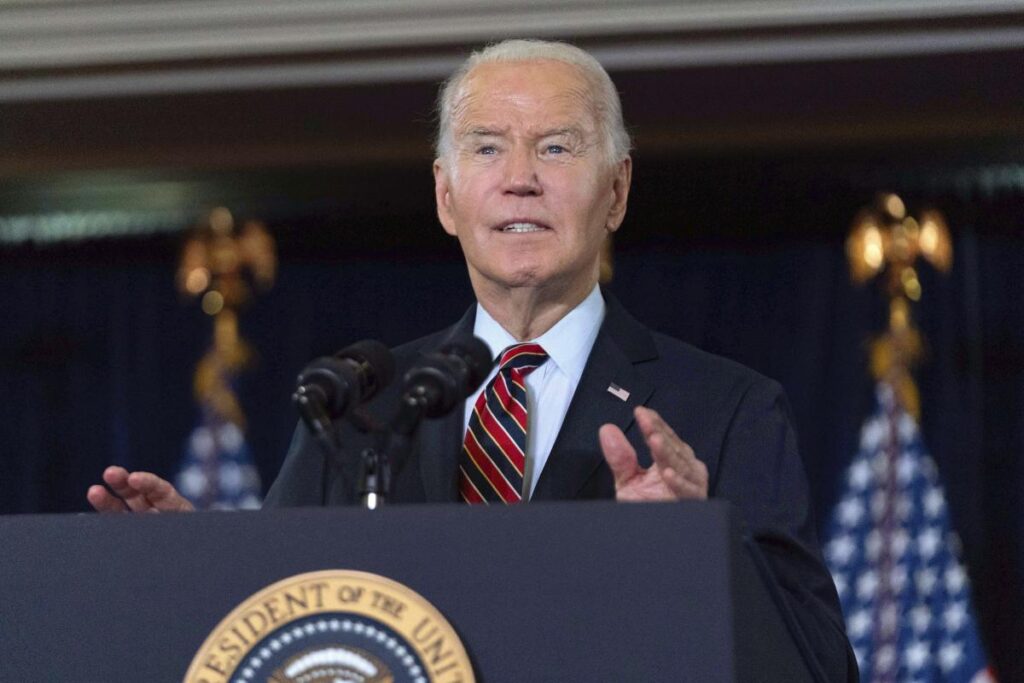President Joe Biden’s recent decision to commute the sentences of nearly all federal death row inmates marks a significant shift in the U.S. approach to capital punishment and serves as a strategic maneuver to limit the incoming administration’s capacity to reinstate executions. Biden intends to pit his actions against the backdrop of President-elect Donald Trump’s strong endorsement of the death penalty, effectively ensuring that the next administration won’t be able to execute those he has now spared. Of the 40 men currently on federal death row, Biden is commuting the sentences of 37 to life imprisonment without the opportunity for parole, aligning this move with the administration’s ongoing moratorium on federal executions. This policy is a cornerstone of Biden’s broader vision aimed at abolishing capital punishment, which he has actively advocated for throughout his public career.
In a public statement regarding the commutations, Biden expressed his deep reflection on the moral implications of capital punishment, reiterating his feelings toward the crime and its victims. He acknowledged the gravity of the crimes committed by the condemned individuals while asserting a need for systemic change guided by a compassionate and informed perspective. Drawing upon his extensive experience as a public defender and a member of various legislative bodies, Biden conveyed a profound conviction that the death penalty is no longer a just or tenable form of punishment. His rationale positions the commutations not merely as acts of mercy but as part of a larger movement toward justice reform and the re-evaluation of longstanding punitive measures.
Biden’s decision excludes three convicts involved in what he categorizes as terrorism or hate-fueled mass killings, which include the Boston Marathon bomber, Dzhokhar Tsarnaev, and the perpetrators of violent attacks in places of worship — Robert Bowers and Dylann Roof. The exclusion of these high-profile individuals underscores the president’s intent to strike a balance between compassion and public sentiment, recognizing the gravity of their crimes while attempting to enact broader changes in the penal system. This choice also highlights the limitations of his clemency powers, as state death row inmates remain unaffected by federal decisions, maintaining the disparate landscape of capital punishment across the country, where thousands still face the death penalty in state jurisdictions.
The context surrounding Biden’s clemency actions is further complicated by the pressures faced from advocates who have long urged for sweeping reforms and the cessation of the death penalty. This sentiment gained traction amid heightened scrutiny of the justice system and its disparities, particularly concerning racial inequities. While Biden’s administration has not yet fully realized the abolition efforts he championed on the campaign trail, halting federal executions and signaling a commitment to re-examine capital punishment signify meaningful steps toward comprehensive reform. Despite these developments, Biden’s administration has faced backlash, particularly from opposition figures and Republican officials, who criticize the perceived leniency shown to individuals convicted of severe crimes.
Criticism surfaced quickly in relation to the full commutation of death sentences. Prominent Republican voices, including Senate Minority Leader Mitch McConnell, have denounced the prospective leniency toward convicts regarded as some of the country’s most notorious criminals. The reaction reflects a broader societal debate about justice, punishment, and the morality of capital punishment, which remains a highly polarizing topic in American politics. In response, the White House has proactively highlighted testimonials from clemency advocates praising Biden’s actions, illustrating the administration’s intention to shore up support from marginalized communities long impacted by the justice system. This strategy appears to aim at building a narrative of rehabilitation and second chances instead of retribution.
In addition to capital punishment commutations, President Biden has taken other clemency actions throughout his term, notably pardoning and commuting the sentences of nearly 1,500 individuals convicted for nonviolent offenses. This broader gesture towards clemency has also incited controversy, particularly when it comes to individuals like a former Pennsylvania judge. Biden’s recent actions exemplify a considered approach to criminal justice reform, although they also evoke strong responses regarding fairness and accountability within the justice system. As his term approaches its conclusion, the Biden administration has indicated that additional clemency measures may be forthcoming, emphasizing a commitment to creating pathways for rehabilitation and reintegration for formerly incarcerated individuals as part of a larger justice reform initiative.
In summary, President Biden’s commutation of death row sentences reflects a critical juncture in U.S. criminal justice, one that aligns with his broader agenda to curtail the death penalty and address systemic issues within the penal system. The implications of his decisions will reverberate well beyond his term in office, potentially reshaping discussions surrounding capital punishment and the justice system’s integrity. As calls for clemency and justice reform gain momentum, Biden’s actions could serve as a pivotal moment, encouraging ongoing discourse around humane treatment within the penal system and advocating for the transformational ideas of restoration over retribution during a time marked by intense polarization and scrutiny of legal practices in America. With ongoing evaluation and potential for further clemency actions ahead, Biden may be laying the groundwork for a legacy that promotes justice reform and equity, directly challenging the ideals of capital punishment in contemporary society.

